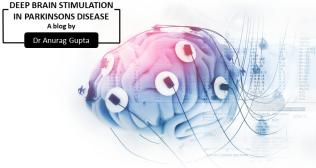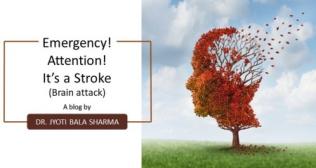
The Impact of Stress & How It Affects Brain Functioning
Claude Bernard believed that the maintenance of life is critically dependent on keeping our internal milieu constant in the face of a changing environment. This phenomenon is called "homeostasis". Stress represents the effects of anything that threatens to disrupt this "homeostasis". Prolonged stress response might lead to tissue damage and organ injury leading to disease.
The human brain is an essential organ of the human body and is protected from circulating molecules by a blood-brain barrier. However, when person experiences stress regularly, this barrier in the brain becomes leaky, thereby allowing the circulatory inflammatory protein to reach the brain. The brain's hippocampus, which is a complex brain structure embedded deep into the temporal lobe and essential for learning and memory, is highly vulnerable to brain leaks.
Chronic stress canals also affect the hormones in the brain, including cortisol and corticotropin-releasing factor that can cause mood disorders while causing physical problems in women, including irregular menstrual cycles. Ahead are three significant ways in which chronic stress can affect the brain health of an individual:
Stress kills brain cells- In a study conducted by researchers from the Rosalind Franklin University of Medicine and Science, it was found that a single socially-stress event could kill new neurons in the brain's hippocampus. The hippocampus, as already described has a significant portion role in memory, emotion, and learning activities. Further, it is one of the two areas of the brain where neurogenesis, or the formation of new brain cells, occurs throughout a person's life. This may have a role in the genesis of Post-traumatic stress disorder (PTSD).
It can cause a host of mental illnesses- Chronic stress leads to long-term changes in the brain. People more prone to stress are at a higher risk for mood and anxiety disorders, especially at a later stage. It can lead to depression and other emotional disorders as well.
So, what should you do if you or someone you know suffers from chronic stress? Luckily there are ways to tackle this issue, and ahead are a few tips that might help you.
Having control over the situation is helpful. Sometimes one must accept that certain events are beyond control. Maintaining a healthy and disciplined lifestyle is of immense value. A good night's sleep helps. Alcohol and substance don't help in fighting stress. Physical activity and exercise are practical tools in the fight against stress. Since exercise increases neurogenesis, it can play a pivotal role in improving an individual's mood, cognition, and health. Exercise also releases endorphins that have a soothing effect on the body.
Connecting with family and friends is a great way to beat stress as it helps to distract the mind and is generally a source of happiness and contentment for most people. Learning new things is also a great way to beat stress as it can help build an individual's cognitive reserve, which is effective in beating stress and anxiety. Most importantly, when a person experiences stress, especially for more than a week, they should seek the help of medical experts. Early detection and effective early treatment are the keys to a good outcome and good well-being.
Categories
Clear allMeet the doctor

- Neurology | Neurology
-
21 Years
-
1500



















